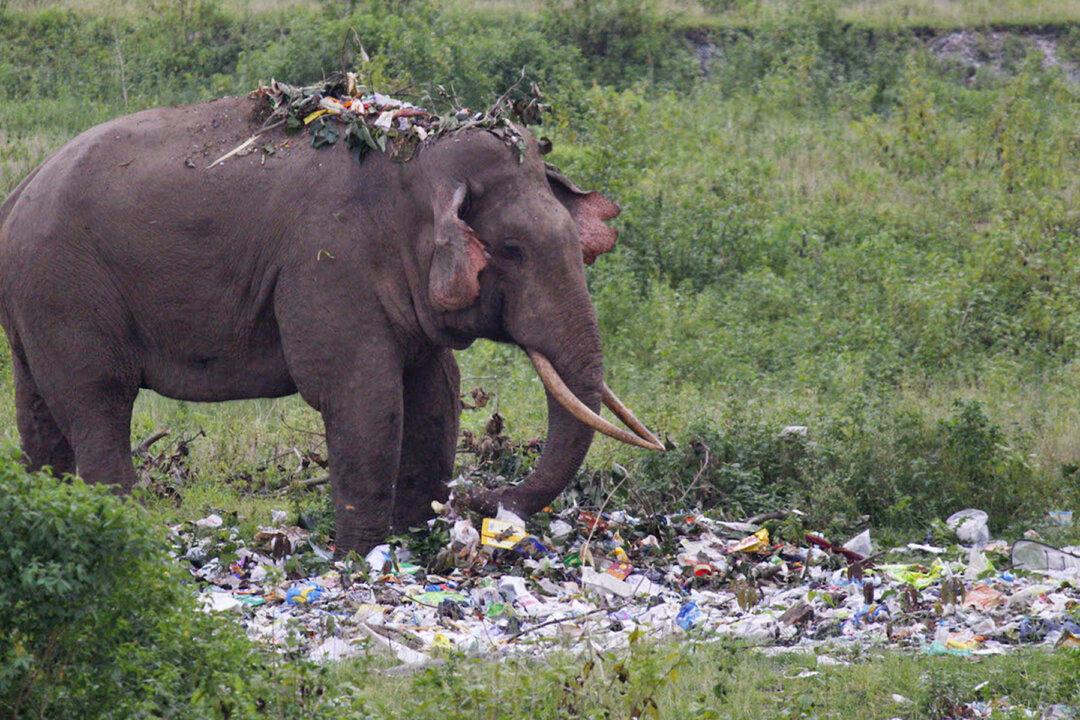A series of heartbreaking images of a hungry elephant rummaging through piles of trash has shed light on the harsh reality of the world’s plastic pollution crisis.
The set of tragic pictures that were snapped by a sports photojournalist, Pranab Das, in West Bengal, a state in eastern India, shows the majestic animal amid plastic litter that was left by a bunch of tourists.






